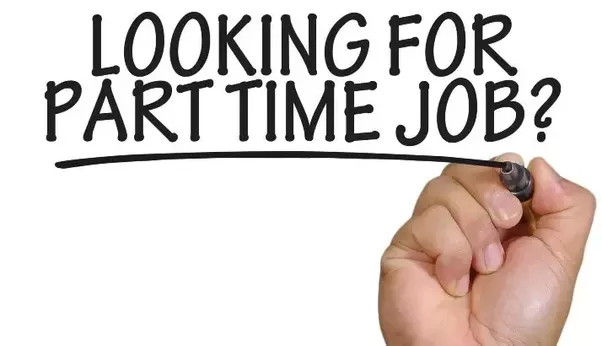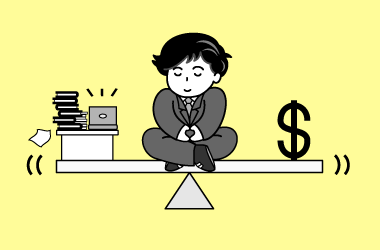Adolescence is the tricky, challenging and transition period from children to adulthood. It is a process for teens to develop into mature, productive, responsible members of the community. One way of making the transition easier is to experience part-time employment. A job can help teenagers better develop their identities, obtain increased autonomy, achieve new accomplishments, develop reliability and trustworthiness, develop work experience, and become more independent from their parents. Teens usually motivated to work to get money to buy things or to help their families financially.

In Malaysia, the law stipulates that minimum age to work is 15 years old. Teenagers who work is governed under the Children and Young Persons (Employment) Act 1966.
However, not many teenagers in Malaysia take out a part time job. Are they too busy with extra classes, tuitions, gadgets or social medias? Some teens (or parents) are worried that taking a job will have a negative impact on their studies. Is the focus on achieving as detrimental to other aspects of personal development?
Part time jobs made teens resilient, taught them how to handle responsibility and juggle priorities. Many teenagers nowadays miss out on those life skills. Admission to universities requires experience outside of school environment, in addition to academic qualifications. Transferable skills such as taking responsibility, working as a team and resilience are some of the important things to look for. Work experience can help build these skills. By taking part time job, students make the most of opportunities outside of school. These skills are not developed by studying to the exclusion of everything else.
There are many obstacles to teens obtaining employment. Having reliable transportation is critical, and that can be difficult if the job is not close to home. Some employers are not keen to employ adolescents because of the stereotype impressions, such as poor attitudes or lack of skills.
Research suggests that students that work 10 hours or less a week gain the benefits of employment, while students that work over 20 hours a week suffer the negative consequences of work mentioned above. Other factors that affect how students handle employment and school life include the intensity and difficulty of the work done.
Benefits of teens having a part-time job
- Obtain valuable work experiences, which are excellent for a resume.
- Learn how to appreciate hard work, money and effectively manage finances. They will learn to budget between clothes, movies, and travel expenses.
- May provide networking possibilities.
- Provide constructive use of free time. Employment gives teens less time to engage in risky behaviours.
- Learn time management skills.
- Learn and form good work habits.
- Gain useful, marketable skills such as improving their communication, how to handle people, developing interview skills and filling out job applications.
- Instilling new confidence, sense of responsibility and independence.
Disadvantange of teens holding a part-time job
There are also negative consequences of teen employment that may outweigh the positive benefits, such as:
- Less time for homework. Working students may not have or make the time to complete their work.
- Higher rates of absenteeism and less school involvement. Employment may limits the student’s study and sleep time. Fatigue or lack of preparation for the day’s academic activities may discourage the working teen from going to school. A job may take the place of extracurricular activities.
- Lower grades in school. Research shows students who work more than 20 hours a week have grade point averages that are lower than other students who work 10 or less hours a week.
- More likely to use drugs and alcohol. Research suggests that substance abuse is higher for students who work 20 or more hours per week.
- Development of negative views of work itself. Early entry into a negative or harsh work environment may encourage negative views of work. This would depend greatly on the maturity level of the teenager and the type of job obtained.
- Increased stress. Balancing work and school can be too much for any student.

How Parents Can Help Working Teens
Before your teen applies for employment, be sure to discuss the pros and cons with him or her, as well as the responsibilities associated with a job. You may also want to agree to a job on a trial basis. There are several things that you as a parent can do for your teen to help ease the stress associated with juggling school, work, and family life:
- Inform the teen about how you expect them to use their income. This will help to avoid later conflicts about money.
- Create a daily or weekly schedule with your teen that highlights the time that they spend working and the time they spend on homework and other school-related activities.
- Set up family time periodically. This could be once a week or month and is a time where you and your teen can reconnect through conversations or family outings.
- Teach your teen practical ways to manage adverse situations on their jobs as well as in school.
- Teach your teen effective ways to manage the many demands that are made on their time. As they move closer to adulthood it will be necessary to manage many demanding roles as their responsibilities increase. This is a good time to learn how to use their time and resources wisely.
- Be supportive.
Part-time jobs can be a wonderful experience, with the right supervision and parental guidance.
Reference:
- Children and Young Persons (Employment) Act 1966 (Act 350)
- Seksyen 1 Akta Kanak-kanak dan Orang Muda(Pekerjaan) 1966 (Akta 350)
- Seksyen 29A Akta Pendidikan 1996(Akta550)
- http://www.telegraph.co.uk/women/family/should-push-teen-finding-part-time-job/”>http://www.telegraph.co.uk/women/family/should-push-teen-finding-part-time-job/
- https://middleearthnj.wordpress.com/2010/04/02/teenagers-and-part-time-jobs-benefits-drawbacks-and-tips/
| Last Reviewed | : | 16 Oktober 2017 |
| Writer | : | Dr. Harlina Bahar |
| Accreditor | : | Datin Dr. Zil Falillah Bt. Mohd Said |







